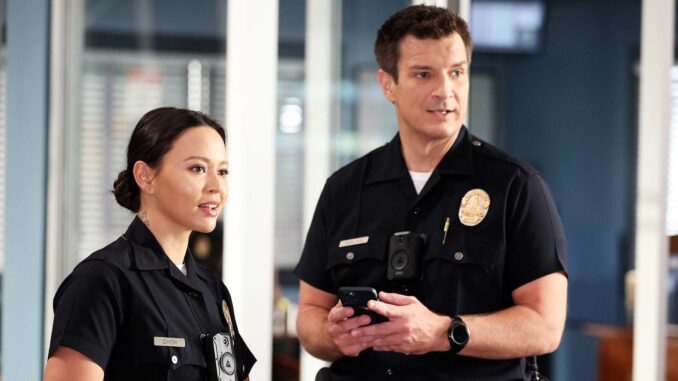
Breaking the Mold: Why The Rookie Spinoff Pilot Could Be a Game Changer
"The Rookie" has carved out a comfortable niche for itself on network television, a procedural that balances compelling cases with the lighthearted camaraderie of its ensemble cast. But with its ambitious spinoff pilot, the franchise has the potential to be more than just a reliable weekly dose of police work. The pilot, potentially titled "The Rookie: Untouchable" or similar, isn't simply replicating the formula with a new location and fresh faces; it possesses the elements necessary to be a genuine game changer, potentially redefining the expectations for police procedurals in the current media landscape.
The key to this potential lies in its willingness to engage with the complex and often fraught relationship between law enforcement and the communities they serve, particularly focusing on social justice and police accountability. While "The Rookie" has occasionally dipped its toes into these waters, the spinoff pilot has the opportunity to dive deep, exploring the nuances and systemic issues that fuel public mistrust and demand for reform. A game-changing show doesn't shy away from controversy; it embraces it, using its platform to spark dialogue and explore different perspectives.
Imagine a scenario where the pilot opens not with a textbook arrest, but with the aftermath of a police shooting, viewed through the eyes of both the investigating officers and the affected community. Instead of presenting a simplified "good cop/bad cop" narrative, the show could delve into the psychological toll of split-second decisions, the pressures of upholding the law within a flawed system, and the systemic biases that can contribute to disproportionate outcomes. By humanizing the officers while simultaneously acknowledging the legitimate grievances of the community, the spinoff could create a space for empathy and understanding, a crucial step towards bridging the divide.
Furthermore, the pilot could differentiate itself through its casting choices. A diverse ensemble, reflecting the demographics of the city it depicts, wouldn't just be a matter of checking boxes. It would provide opportunities to explore the different experiences and perspectives within law enforcement, highlighting the internal struggles of officers from marginalized communities who are caught between their oath to serve and protect and their personal understanding of the systemic injustices they witness. This layered approach could bring a much-needed authenticity to the portrayal of police work, moving beyond the stereotypical tropes that often dominate the genre.
However, the potential for game-changing impact extends beyond its thematic ambitions. The pilot also has the opportunity to experiment with narrative structure. Moving away from the traditional case-of-the-week format, the spinoff could embrace a more serialized approach, allowing for longer, more complex storylines to unfold over multiple episodes. This would allow for deeper character development, a more nuanced exploration of systemic issues, and a greater sense of investment from the audience. Instead of quick resolutions and tidy endings, the show could grapple with the messy realities of police work, acknowledging that solutions are often elusive and that progress is rarely linear.
The risk, of course, is that the show falls into the trap of being preachy or overly simplistic. A true game changer needs to be engaging and entertaining, not just didactic. The key will be to balance the exploration of complex issues with compelling characters, gripping storylines, and moments of genuine human connection. If the pilot can achieve this delicate balance, it has the potential to not only attract a wider audience but also to spark meaningful conversations about the role of law enforcement in society.
In conclusion, the "Rookie" spinoff pilot is not just another procedural hoping for a slice of the pie. It possesses the ingredients to be a genuine game changer, a show that dares to confront the complexities of policing in the 21st century. By embracing nuanced storytelling, diverse perspectives, and a willingness to engage with challenging topics, the pilot has the potential to redefine the expectations for police procedurals, transforming them from simple entertainment into platforms for dialogue and understanding. The future of the franchise, and perhaps the future of the genre itself, may well depend on its success.